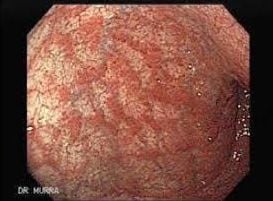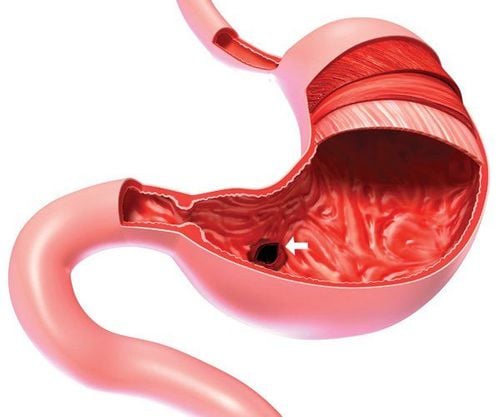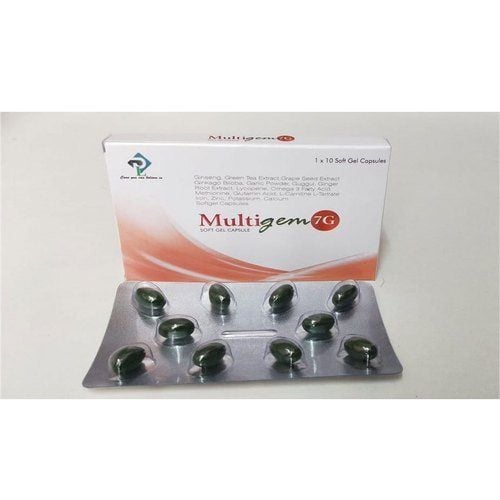This is an automatically translated article.
Posted by Master, Doctor Mai Vien Phuong - Department of Examination & Internal Medicine - Vinmec Central Park International General Hospital
Giant cell anemia due to vitamin B12 (or folate) deficiency leads to faulty red blood cell production and DNA synthesis, thus producing large red blood cells. In chronic autoimmune atrophic gastritis, the presence of autoantibodies against intrinsic factor and/or parietal cells leads to pernicious anemia (PA).
1. Consequences of vitamin B12 deficiency in patients with chronic atrophic gastritis
Chronic atrophic gastritis leads to malabsorption of vitamin B12 from food due to reduced intrinsic factor production, leading to megaloblastic anemia (a type of macrocytic anemia) and neuropathy menorrhagia. Folate deficiency can lead to a similar clinical picture.
The terms 'metacytic anemia' and 'macrocytic anemia' should not be used interchangeably, as not all causes of macrocytic anemia are due to vitamin B12 deficiency but all All causes of megaloblastic anemia are B12 (or folate) deficiency. In contrast, the mechanism underlying iron deficiency anemia (iron deficiency anemia) in atrophic gastritis is less well understood, but may be due to decreased acid secretion or atrophic gastritis caused by H. pylori. Therefore, it is important to rule out atrophic gastritis due to H. pylori infection in any patient with iron-deficiency anemia of unknown cause, as the disease is treatable.
2. Chronic autoimmune atrophic gastritis can be associated with other autoimmune diseases
Chronic autoimmune atrophic gastritis can occur as part of a polycythemia vera syndrome and may be associated with other autoimmune diseases such as type I diabetes, vitiligo (which is a chromosomal disease). pigmentation in the skin, hair, and hair due to the loss of the function of pigment cells to produce pigment leading to skin lesions such as macules, loss of pigment patches) and thyroid disease; Therefore, these related conditions should be considered during the evaluation of chronic atrophic gastritis.
In addition, deficiencies of other vitamins and micronutrients (including vitamin D, calcium, and vitamin C) have been known to occur in patients with chronic atrophic gastritis, despite frequency and severity. Their mechanism of onset is poorly understood.

>> See also: Vitamin D, C and calcium deficiency in patients with chronic atrophic gastritis – Posted by Master, Doctor Mai Vien Phuong - Department of Medical Examination & Internal Medicine - Vinmec International General Hospital Central Park
3. Lack of vitamins and micronutrients due to vitamin B12 deficiency
The absorption of vitamin B12 in food is mainly dependent on the intrinsic factor glycoprotein produced by the parietal cells of the stomach. The vitamin B12 intrinsic factor complex is ultimately absorbed in the terminal ileum. In chronic atrophic gastritis, lack of intrinsic factor production due to parietal cell destruction results in decreased absorption of vitamin B12.
Giant cell anemia due to vitamin B12 (or folate) deficiency leads to faulty red blood cell production and DNA synthesis, thus producing large red blood cells. In chronic autoimmune atrophic gastritis, the presence of autoantibodies against intrinsic factor and/or parietal cells leads to pernicious anemia (PA).
Testing of both antibodies significantly increases their diagnostic performance for the diagnosis of chronic autoimmune atrophic gastritis and pernicious anemia, providing 73% sensitivity and 100% specificity for pernicious anemia count. Immune destruction of parietal cells leads to reduced intrinsic factor production, leading to pernicious anemia, which is especially common in Western countries and the elderly. Other conditions causing megaloblastic anemia due to vitamin B12 deficiency should be distinguished from chronic autoimmune gastritis causing pernicious anemia with intrinsic factor deficiency.
4. Consequences of Vitamin B12 deficiency
A lack of vitamin B12 affects two enzymes that humans require, methionine synthase (cytoplasm) and methylmalonyl-CoA mutase (mitochondrial), and increases homocysteine and methylmalonic acid (MMA) levels. corresponding. In extreme cases of vitamin B12 deficiency, elevations of homocysteine and MMA can confirm the diagnosis, particularly in the presence of other compatible clinical or biochemical findings.
Interpret homocysteine and MMA levels with caution in renal failure and pregnancy where falsely high levels may occur. Elevated plasma homocysteine is now recognized as an independent risk factor for cardiovascular disease and appears to play an important role in the development of dementia, diabetes, and kidney disease. . Homocysteine is also elevated in folate deficiency.
5. Manifestations of vitamin B12 deficiency
The clinical sequelae of vitamin B12 deficiency range from asymptomatic to varying degrees of hematological and neurological dysfunction, reversible or irreversible with supplementation. The classic neurologic presentation of a patient with pernicious anemia is sensory loss with gait abnormalities, demyelinating peripheral polyneuropathy, and paresthesias. .Cognitive changes may also be seen including amnesia, apathy, depression and eventually more severe cognitive impairment. In the most severe forms of vitamin B12 deficiency, complete myelopathy with subacute spondylolisthesis and blindness due to visual atrophy can occur. The numerous hematological manifestations include megaloblastic anemia (due to impaired DNA synthesis and erythropoiesis) with thrombocytopenia despite hyperplastic bone marrow. It appears that awareness of chronic atrophic gastritis and its clinical consequences among physicians is reduced, often resulting in significant delays in diagnosis. This can lead to a diagnosis of an underlying vitamin B12 deficiency being missed for months. A recent study from Italy that looked at 291 patients with chronic atrophic gastritis found an average overall delay in diagnosis of 14 months, especially for gastroenterologists.

6. Can proton pump inhibitors (PPIs) and H2 receptor antagonists lead to vitamin B12 deficiency?
There is clearly a need for increased education and awareness on this and that treating physicians need to maintain a high index of suspicion. Whether acid-blocking drugs such as proton pump inhibitors (PPIs) and H2-receptor antagonists can lead to clinically significant vitamin B12 deficiency remains a matter of debate. It is not clear whether the effects of these drugs on serum vitamin B12 are associated with an increased risk of functional or biochemical deficiencies (as indicated by elevated blood homocysteine and MMA levels) or deficiency. clinical deficits (including giant cell anemia and neurological disorders).
Recently, an expert review and best practice advice statement from the American Gastroenterology Association recommended that long-term PPI users should not routinely increase their vitamin B12 intake beyond the daily recommendation. , nor should vitamin B12 levels be checked or monitored regularly.
The route of replacing vitamin B12 in patients with deficiency has also become a matter of controversy. Most patients with clinical vitamin B12 deficiency have malabsorption and require high-dose intramuscular (IM) or oral replacement. People with chronic autoimmune atrophic gastritis causing pernicious anemia will need lifelong supplementation.
A recent Cochrane review by Wang et al showed that oral and intramuscular vitamin B12 supplementation had similar effects in terms of normalizing serum vitamin B12 levels, but at the expense of parenteral therapy. drink less. However, the quality of evidence is low due to the lack of high-quality comparative studies.
Currently, Vinmec International General Hospital is a prestigious address trusted by many patients in performing diagnostic techniques for digestive diseases, diseases that cause chronic diarrhea, Crohn's disease, inflammatory bowel disease.. Along with that, at Vinmec Hospital, screening for stomach cancer and gastric polyps is done through gastroscopy with Olympus CV 190 endoscope, with NBI (Narrow Banding Imaging) function. narrow light frequency) results in clearer mucosal pathological analysis results than conventional endoscopy, detection of ulcerative colitis lesions, early gastrointestinal cancer lesions... Vinmec Hospital with modern facilities and equipment and a team of experienced experts who are always dedicated in medical examination and treatment, customers can be assured of gastroscopy and esophagogastroduodenoscopy services here. .
Please dial HOTLINE for more information or register for an appointment HERE. Download MyVinmec app to make appointments faster and to manage your bookings easily.
References Gluckman CR, Metz DC. Gastric neuroendocrine tumors (Carcinoids). Current Gastroenterology Reports (2019) 21:13. 2.Sato Y. Clinical features and management of gastric carcinoid type 1. Clin J Gastroenterol (2014) 7: 381386.
Lahner E, Carabotti M, Annibale B. Atrophic gastritis: Manifestations, diagnosis and clinical outcomes. EMJ Gastroenterol. 2017; 6 [1]: 75-82. Bank M, Graham D, Jansen M, et al British Gastroenterology Society guidelines for the diagnosis and management of patients at risk for gastric adenocarcinoma. Intestine. September 2019; 68 (9): 1545-1575.














